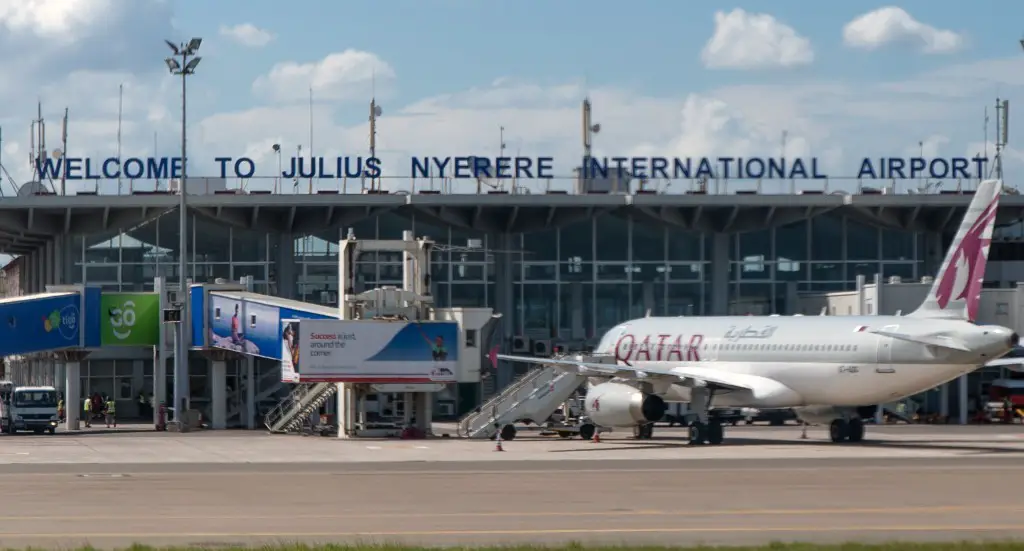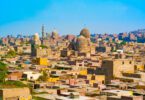Tanzania has heightened its COVID-19 surveillance following a sharp increase in daily infections over the last couple of weeks.
Last week, Tanzania mainland and Zanzibar Health ministries issued new guidelines for surveillance affecting all international travelers.
Zanzibar and mainland Health Permanent Secretaries Fatma Mrisho and Abel Makubi issued a joint statement to this effect.
Table of Contents
New Travel Rules To Tanzania
Now, all travelers entering Tanzania – returning citizens too – must present a COVID-19 negative certificate upon arrival.

Travelling To Tanzania. Photo/ Daily News]
It must be done 96 hours before arrival to Tanzania. And, Tanzania was specific on the type of test results it will accept.
Only test done through Real-Time Reverse Transcription Polymerase Chain Reaction (RT-PCR) is acceptable. Or the other one done using Nucleic Acid Amplifications Tests (NAATS) usually done at accredited laboratories.
Further, before arrival to Tanzania, all travelers must fill in a traveler’s health surveillance form online a day before arrival.
All arriving travelers must be in compliance with COVID-19 control protocols in public spaces. This means they must practice stipulated hygiene standards, wear facemasks all the time and keep social distancing.
The ministry directed officials across all entry points to Tanzania to ensure that travelers comply with these guidelines.
What Happens To Travellers From Red List Countries Entering Tanzania?
Additionally, travelers entering Tanzania from countries with high COVID-19 cases or a new variant in the last 14 days will undergo a rapid test upon arrival. And they will foot the cost of the test.
The ministry in the guidelines says the “Cost for Covid-19 rapid test shall be to Tsh23,000 ($10) of which is non-refundable.
“… and testing fees applies to travellers arriving in Tanzania mainland by air or marine vessels, for Zanzibar the cost for rapid test shall be Tsh58,000 ($25).”
Online payment for the rapid COVID-19 test is encouraged for mainland travelers to avoid long payment queues after arrival.
Are Children Required to Submit A Negative COVID-19 Certificate?
The ministry, however, exempted children under the age of five from presenting a PCR-based COVID-19 negative test.
Transit travelers and airport crew are also exempted from presenting a negative COVID-19 test.
Which Category Of Travellers Will Isolate?
All travelers who take a COVID-19 rapid antigen test will have to isolate for 14 days in their residences. They will have to acquire a negative PCR-based test.
Officials will closely monitor them to ensure they follow all isolation rules put in place by the ministry.
For truck drivers, they must provide a PCR-based negative test that is valid for 14 days from the date of the test.
Those who get the test from approved laboratories will have it for free.
Further, there will be intense screening across the borders and all other entry points for trucks into Tanzania.
If a truck driver is found to be positive or suspected to be, they will be isolated at their own cost.
Also, each truck shall not exceed three people for ease of screening at the border crossing, said the ministry.
Lastly, each driver must note down his/her final destination at the border post. Should he/she be quarantined, the company/owner of the truck must make arrangements for delivery to the final destination.
CDC Travel Alert To Tanzania
In December 2020, the Centers for Disease Control and Prevention (CDC) warned Americans against traveling to Tanzania.
“Travellers should avoid all travel to Tanzania. Travel may increase your chance of getting and spreading Covid-19,” the CDC said.

New Covid-19 rules in Tanzania. [Photo/ The Citizen]
The late President John Pombe Magufuli opened the country in June 2020 at a time when most African countries were still on lockdown.
Magufuli in one of his addresses in April 2020 declared Tanzania safe from the virus. He said that the prayers and the deep faith of his people made it possible to be COVID-free.
He maintained he would not lock down the country or enforce stringent COVID-19 rules as was the case with Kenya, Uganda, and Tanzania at the time.








